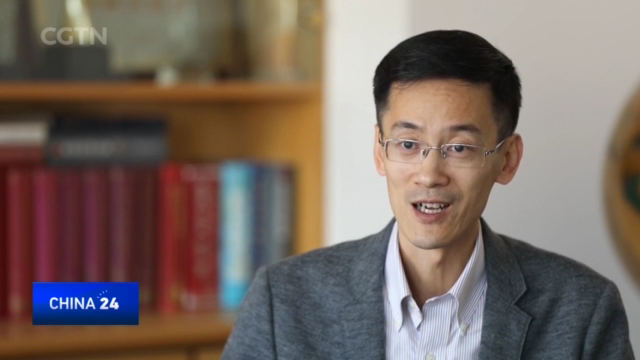
21:18, 13-Nov-2018
Chinese Economy: Financial development encourages people to save less
Updated
20:26, 16-Nov-2018
03:21

China's central bank says the country's household deposits dropped by 334 billion yuan in October, while household sector loans increased by 563 billion yuan. In the era of e-commerce and internet financing, people aren't saving the way they used to. CGTN's Feng Yilei looks at this new trend in a country known for saving money.
A time for bargains at the nationwide shopping carnival. For Lai Wenjun, the desire to please herself by fulfilling a shopping list feels good. Now with online financing services, she can rest easy about paying.
LAI WENJUN BANK EMPLOYEE "I've used several internet credit line programs, such as Alibaba's Huabei and JD's Baitiao, to pay in instalments. I don't want purchasing, returning and reordering garments online to affect my cash flow or my life quality. And I can buy more expensive goods."
Experts say Double Eleven is a typical example of how Chinese people are spending more and saving less in recent years. The phenomenon is driven by factors other than the universal rule that savings decrease as GDP grows.
LIU DONGMIN, DIRECTOR OF INT'L FINANCE DEPT. INSTITUTE OF WORLD ECONOMICS AND POLITICS, CHINESE ACADEMY OF SOCIAL SCIENCE "With the rising per capita income, people no longer struggle for a living and are willing to spend more to enjoy their lives. Moreover, the developing financial instruments, such as consumer credit, allow people to borrow and spend."
This Double Eleven brought with it new e-commerce mechanisms to further boost sales. Alibaba's new financial technology guarantees payment in different scenarios, while JD.com increased their online financing by 80 billion yuan. But despite the e-savvy younger generation, older Chinese who typically don't use online financing are also depositing less in their savings accounts.
SUN LILING RETIREE "I spare about 20 to 30 percent of my deposits to buy various financing products now. And I also purchase housing with a mortgage loan."
FENG YILEI BEIJING "The decline in Chinese household savings is a result of economic growth. It shows an improvement in Chinese living standards and an expanding domestic demand. Many say the momentum will change the trend of the Chinese economy relying too heavily on foreign demand and governmental investment. But there are also problems."
More Chinese now borrow money to buy goods, and even real estate. Experts say this may lead to an increase in both household debt, and financial risk. Statistics show Chinese household loans last year increased faster than household deposits by 13.9 percentage points. The gap is bigger than that before the 2008 turmoil.
LAI WENJUN BANK EMPLOYEE "I'm kind of a shopaholic. I tend not to get too into consumer loans to stop myself from robbing Peter to pay Paul or overdrafting my future. In a broad sense, over-consumption will lead to high leverage and causes financial crisis."
Experts believe China's household savings will continue to decline in the long run, in light of a developing social security system and an aging society. The good news is, China's long-term high savings rate, even after years of decline, is still well above the average. The major task for the country at present is to prevent the excessive growth of household debt and possible other financial risks. FYL, CGTN, Beijing.

SITEMAP
Copyright © 2018 CGTN. Beijing ICP prepared NO.16065310-3
Copyright © 2018 CGTN. Beijing ICP prepared NO.16065310-3